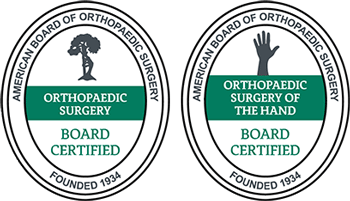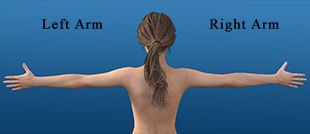Why Is Surgery Pain Worse at Night?
While a certain amount of pain is to be expected after surgery, some patients are surprised to find that post-surgery pain is worse at night than it is during the day. Understanding why this happens and how to handle it can speed your recovery, minimize discomfort, and help you avoid some of the hazards associated with poor sleep after surgery. Though postsurgical nighttime pain is a common issue, it’s not necessarily something you have to live with. Let’s look at some strategies to keep pain from disrupting your sleep.
Contents
Why Pain Intensifies at Night

woman in white robe sitting on chair by Andisheh A is licensed with Unsplash License
There are many possible reasons why pain might worsen at night. The body produces less of the anti-inflammatory hormone cortisol at night. This lack can cause inflammation and associated discomfort to flare up around bedtime. Some medications, such as opioids, cause sleep disturbances, which can leave you wakeful with little to do but think about your pain. Depending on the nature of your surgery, certain movements can cause pain as you adjust your position during the night.
If nighttime pain keeps you awake, it can spark a problematic cycle. Lack of sleep makes it more difficult for the body to manage pain. Around 50% of people with insomnia also suffer from chronic pain. Understanding some of the potential sources of your overnight surgery pain can help you develop strategies to manage it.
Psychological Factors Affecting Nighttime Pain
Nighttime pain often seems worse than daytime discomfort simply because you have fewer distractions to distract your attention from it at night. Patients who are also experiencing depression, stress, or anxiety are more likely to have trouble sleeping.
Stress and anxiety are common among all Americans. Over half of adults say stress has a major impact on their mental health, and 43% of adults reported feeling more anxiety in 2024 than in the previous year. Depression rates are reaching new highs in the United States, with 29% of Americans indicating that they’ve been diagnosed with depression at some point in their lives.
Surgery can be a source of anxiety and depression, even if you didn’t previously suffer from these conditions. Pain and restrictions on movement and activities can cause you to feel hopeless. Concern over long-term outcomes from surgery can lead to increased anxiety and even panic attacks. Whether you’re dealing with postsurgical anxiety and depression or a pre-existing diagnosis, your psychological health can have a significant impact on your sleep quality and how you experience nighttime pain.
Medical Explanations for Increased Nighttime Pain
Your body has myriad responsibilities to attend to during the day. Your muscles handle everyday movements, your digestive system works through your meals, and your brain attends to the tasks and challenges of the day. This can leave physical recovery a low priority. When you lay down to rest at night, your body gets a break from movement, thought, and digestion, freeing up nerve signals and blood flow for more intensive healing. As your body focuses more on healing, you may experience higher inflammation and pain levels.
This nighttime healing process has a well-documented effect on sleep. Polysomnographic studies have recorded as much as an 80% decrease in total sleep time after surgery. Pain triggered by inflammation is believed to contribute to decreased time in or lack of the rapid eye movement part of the sleep cycle, also known as REM sleep, in postoperative patients.
Using opioids for pain management may cause you to experience additional sleep-related challenges. Opioids can cause respiratory depression, leading to sleep apnea, snoring, and other disturbances that make it hard to sleep.
Managing Postsurgical Pain at Night
It’s essential to develop effective strategies for managing postsurgical pain at night. Nighttime surgery pain is associated with several adverse effects. Postoperative sleep disorders are linked to an increase in major cardiac events. Patients who don’t get adequate sleep may experience a slower recovery. Lack of sleep also increases pain sensitivity both during the daytime and at night. You can use the following strategies to improve sleep quality and manage postsurgical pain.
Minimize Surgical Trauma
Choose laparoscopic surgery rather than open surgery if it’s an option. Your surgeon will let you know if this is appropriate for your situation.
Avoid Opioids
Multimodal analgesia without the use of opioids is the best choice for your pain management post-surgery, especially if you’re experiencing pain that disrupts your sleep at night. It’s a strategy that uses a combination of drugs such as NSAIDs, acetaminophen, alpha-2 agonists, and local anesthetics. If you’re having trouble sleeping, talk to your doctor about adjusting your medications to optimize your sleep.
Preventive Strategies for Minimizing Postoperative Sleep Disturbances
Optimize your sleeping space after surgery. Many of our hand surgeries are outpatient procedures that allow you to leave on the same day. If you have to stay in the hospital overnight, bring comfortable pajamas, an eye mask, ear plugs, and other comfort items that may help, such as your favorite pillow or blanket.
At home, create an environment that’s conducive to sleep by:
- Minimizing light
- Keeping the room cool
- Avoiding electronics in the last hours before bed or using glasses that block blue light if you must look at screens
- Eating your last meal at least two hours before bed
- Maintaining a consistent sleep schedule
- Practicing meditation or another relaxation routine before sleep
Ask your surgeon about the optimal positioning for sleep after your surgery. Strategies such as propping your hand up on a pillow or immobilizing your wrist with a towel wrapped around it may help you sleep more comfortably and minimize discomfort while you’re sleeping.
Contact the Hand and Wrist Institute in Dallas or Southlake
If you’re struggling with postsurgical pain from a hand or wrist procedure, our specialists at the Hand and Wrist Institute can help. Always speak with a healthcare professional about the pain you’re experiencing after surgery for a safe and effective way to approach the issue while supporting your recovery. Contact us today to learn more.

























